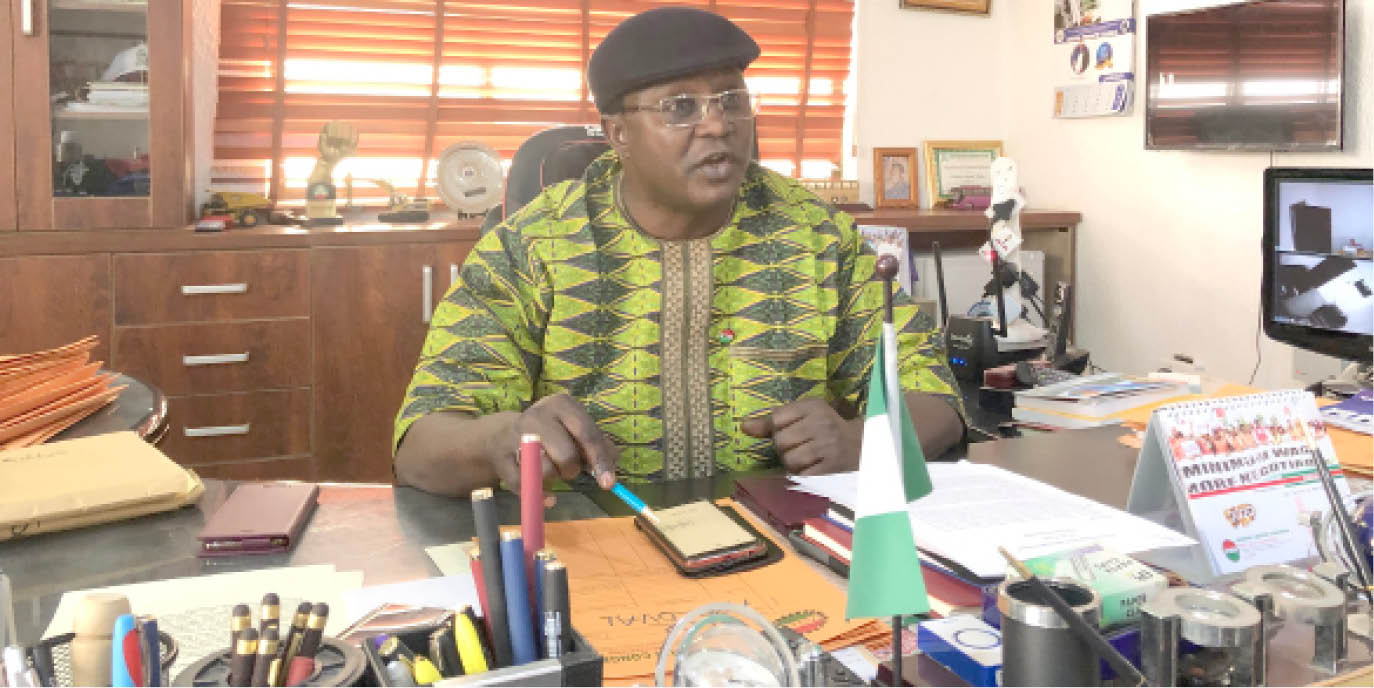COVID-19: NLC faults IMF for excluding Nigeria from debt relief
The Nigeria Labour Congress (NLC) on Tuesday highlighted why Nigeria should not have been excluded from the International Monetary Fund (IMF) list of countries to benefit from its debt relief as a result of the COVID-19 pandemic. The IMF earlier Tuesday announced the approval of a debt relief fund to 25 countries which are mostly […]

NLC President, Ayuba Wabba
The Nigeria Labour Congress (NLC) on Tuesday highlighted why Nigeria should not have been excluded from the International Monetary Fund (IMF) list of countries to benefit from its debt relief as a result of the COVID-19 pandemic.
The IMF earlier Tuesday announced the approval of a debt relief fund to 25 countries which are mostly African countries, with Nigeria, the most populous country in Africa, excluded from the list.
The IMF managing director of the IMF, Kristalina Georgieva in a statement, said it would provide $500m in grant-based debt service relief to the countries.
Those countries enlisted to benefit from the relief fund according to IMF include: Afghanistan, Benin, Burkina Faso, Central African Republic, Chad, Comoros, Congo D.R., The Gambia, Guinea, Guinea-Bissau, Haiti, Liberia.
Others are: Madagascar, Malawi, Mali, Mozambique, Nepal, Niger, Rwanda, São Tomé and Príncipe, Sierra Leone, Solomon Islands, Tajikistan, Togo and Yemen.
Reacting to this development, NLC President, Ayuba Wabba in the statement noted that Nigeria, being a major regional transportation hub should not have been excluded from the list of beneficiaries.
“The implication is that a population as large as Nigeria’s with very active citizens could be a major epicenter for future global waves of COVID-19 if very robust and adequate support is not extended to Nigeria to fight and contain the coronavirus pandemic,” he said.
READ: Nigeria’s economy will contract by 3.4% in 2020 — IMF
He said, “During the two weeks initial lockdown in Lagos, Ogun and the Federal Capital Territory (FCT), there were reports of increased tension, unrest and criminal activities in different parts of the country.”
Wabba noted that even rich countries in Europe and America are struggling to keep up with the supply of essential medical goods and services as COVID-19 bites harder.
According to him, “The fact is that the dangers of a burgeoning constituency of the poor including the working-class poor are staring us hard in the face.
“We do not know how long this dam can hold. But we do know that Nigeria needs all the support it can get, including debt relief, moratorium, and pardon in order to enable the country tide over the waves of COVID-19 pandemic.”
He urged the IMF to reconsider its decision and include Nigeria in its beneficiary list for the COVID-19 related debt relief and debt moratorium based on very cogent reasons.
Wabba said that some of the reasons Nigeria should be included in the relief funds are “dire economic crisis in Nigeria, given the recent plunge in the price of crude oil, Nigeria’s major foreign exchange earner.”
This plunge in the price of crude oil has already led to the downsizing of the capital expenditure in the 2020 national budget, he added.
He also noted that as at December 2019, “Nigeria’s external debt hit a 16 year high of US$27 billion with a debt servicing commitment of US$1.5 billion.
“The fact that Nigeria’s debt servicing is about 5% of our 2020 federal budget and 75% of our external reserves signpost that our debt servicing pledges are impracticable and should be renegotiated,” Wabba said.
He said in order to mobilize the necessary financial resources to fight and defeat COVID-19, the NLC is calling for a temporary suspension of debt payments by developing economies, re-negotiation of debt obligations, and ultimately debt pardon by creditor countries.
